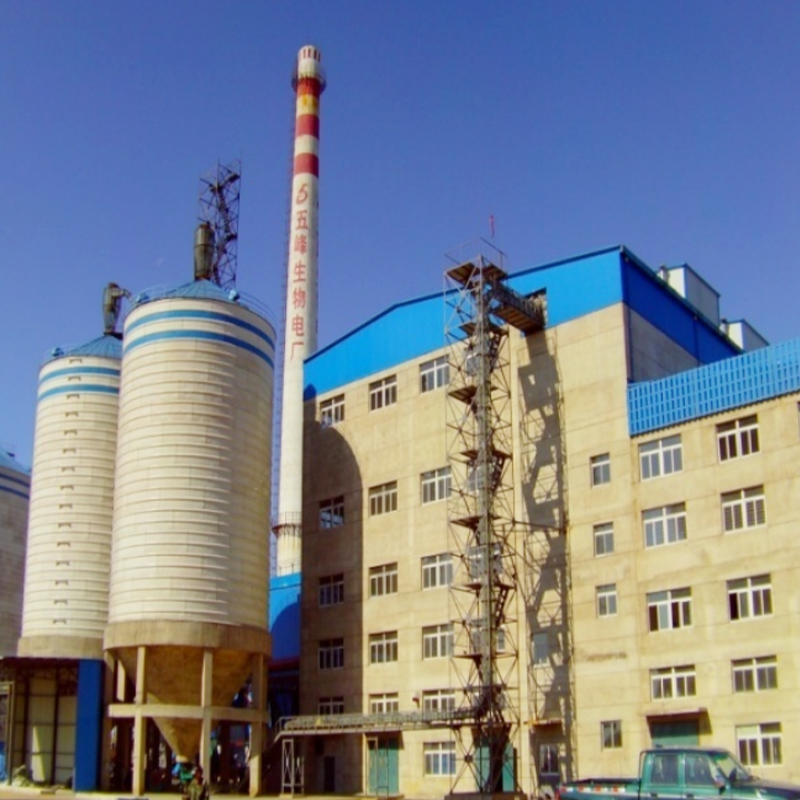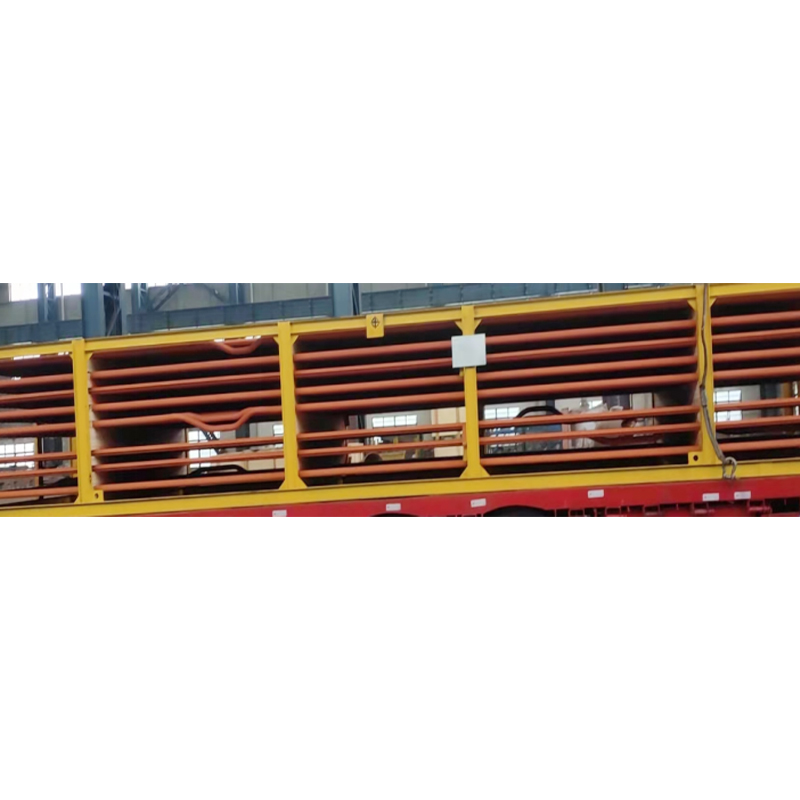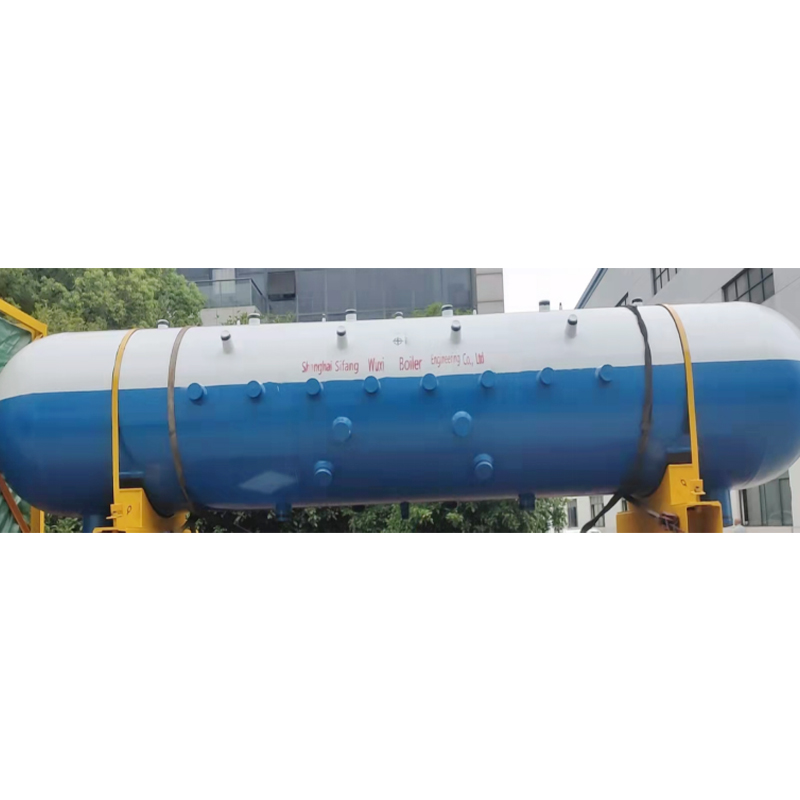Biomass Boiler
**Biomass boiler** is a boiler system that uses biomass fuel (such as wood chips, straw, rice husks, wood pellets, etc.) as an energy source. It generates heat energy by burning biomass fuel for heating, power generation, steam production and other applications. Since biomass is a renewable energy source, biomass boilers have significant advantages in environmental protection, energy saving and sustainable development.
1. **Application scenarios**
Biomass boilers are widely used in many industries and fields, mainly including:
- **Industrial production**: Biomass boilers can provide steam, hot water or hot air for factories, and are widely used in food processing, fertilizer production, pharmaceuticals, textiles, pulp and paper and other industries.
- **Heating**: In rural or urban central heating systems, biomass boilers can be used as a heat source to replace traditional fossil fuel boilers for winter heating.
- **Power industry**: Biomass boilers can be combined with generator sets to generate heat energy by burning biomass and convert it into electrical energy, which is particularly suitable for biomass power plants or cogeneration projects.
- **Agriculture and forestry**: Agricultural waste (such as straw, rice husks, etc.) and forestry waste (such as wood chips, branches, etc.) can be used as fuel for biomass boilers to treat these wastes and recover energy.
- **Waste incineration**: Biomass boilers are also commonly used in waste treatment plants to generate heat or electricity from combustible waste and organic waste.
- **Urban and rural heating**: In many rural areas, especially where crop waste is used, biomass boilers provide a sustainable and cost-effective heating solution.
2. **Application**
The main applications of biomass boilers include:
- **Heating**: Biomass boilers can provide centralized heating for factories, residential areas, agricultural facilities, etc., especially in cold regions with good market applications.
- **Steam and hot water production**: Biomass boilers can produce steam or hot water and are widely used in various industrial production processes, especially in industries that require high-temperature steam, such as food, pharmaceuticals, chemicals, textiles, etc.
- **Power generation**: Biomass boilers are often used in power plants or cogeneration projects. They convert heat energy generated by burning biomass into electricity. They are suitable for small and medium-sized power stations and can provide clean electricity.
- **Waste treatment**: Biomass boilers can effectively burn crop waste, wood waste, garbage, etc., reduce the volume of waste and recover its heat energy, which can both clean up waste and generate energy.
3. **Features**
- **Utilization of renewable energy**: The fuel used by biomass boilers comes from renewable biomass resources, such as crop residues, wood chips, waste, etc., which can effectively reduce dependence on fossil fuels.
- **Wide range of fuel sources**: Biomass boilers have a rich variety of fuels. In addition to common wood chips, rice husks, straw, etc., they can also use agricultural, forestry and industrial waste, and even some organic waste.
- **Low pollution emissions**: The carbon dioxide produced during the combustion of biomass fuels is absorbed by plants during their growth, which belongs to "carbon neutral" emissions. Therefore, compared with fossil fuels, it has lower carbon emissions and pollutant emissions.
- **High-efficiency heat conversion**: Modern biomass boilers use advanced combustion technologies, such as fluidized bed combustion, gasification and other technologies, which can effectively improve the efficiency of heat energy conversion and reduce energy waste.
- **High degree of automation**: Many biomass boilers are equipped with automatic control systems that can automatically control the delivery of fuel, combustion process and smoke exhaust, simplifying operation and maintenance.
- **Lower operating costs**: Biomass fuels are usually cheaper than traditional fossil fuels (such as coal and natural gas), so biomass boilers have lower operating costs, especially for areas rich in agricultural and forestry resources.
4. **Advantages**
- **Environmentally friendly and sustainable**: Biomass boilers use renewable energy, which can reduce greenhouse gas emissions and help address climate change and environmental pollution. The carbon dioxide it emits has been absorbed during plant growth, which belongs to the "carbon neutral" cycle, far lower than traditional fossil fuels such as coal and natural gas.
- **Reduced waste**: Using biomass such as agricultural, forestry waste, and urban garbage as fuel, biomass boilers not only provide energy, but also effectively reduce the accumulation of these wastes and reduce the environmental burden.
- **Energy independence**: Biomass fuels have a strong local supply capacity, especially in areas rich in agricultural and forestry resources, biomass boilers can reduce dependence on external energy and improve energy security.
- **Strong applicability**: Biomass boilers can handle a variety of fuels, especially those wastes that are difficult to use directly, such as straw, wood chips, rice husks, peanut shells, etc.
- **Economical**: Biomass boilers are highly competitive in terms of energy costs, especially in areas with low fuel source costs, which can significantly reduce production and operating costs.
- **Promoting the circular economy**: By recycling agricultural and forestry waste, biomass boilers help promote the recycling of resources and sustainable economic development, which is in line with the concept of circular economy.
- **Low emissions**: Compared with traditional coal-fired boilers, biomass boilers have much lower pollutant emissions (such as sulfur oxides, nitrogen oxides, particulate matter, etc.), which meet strict environmental protection standards.
- **Promoting local economy**: The use of biomass boilers can promote the development of local agriculture, forestry and waste treatment industries, provide local employment opportunities, and promote local economic growth.
Summary
As an environmentally friendly and energy-saving energy solution, biomass boilers have broad application prospects in the context of energy structure transformation and increasing environmental pressure. It uses biomass resources as fuel, which not only helps to reduce environmental pollution, but also effectively reduces energy costs, reduces waste, and promotes sustainable development. Whether in industrial production, heating systems, power generation projects or waste treatment, biomass boilers play an important role.



